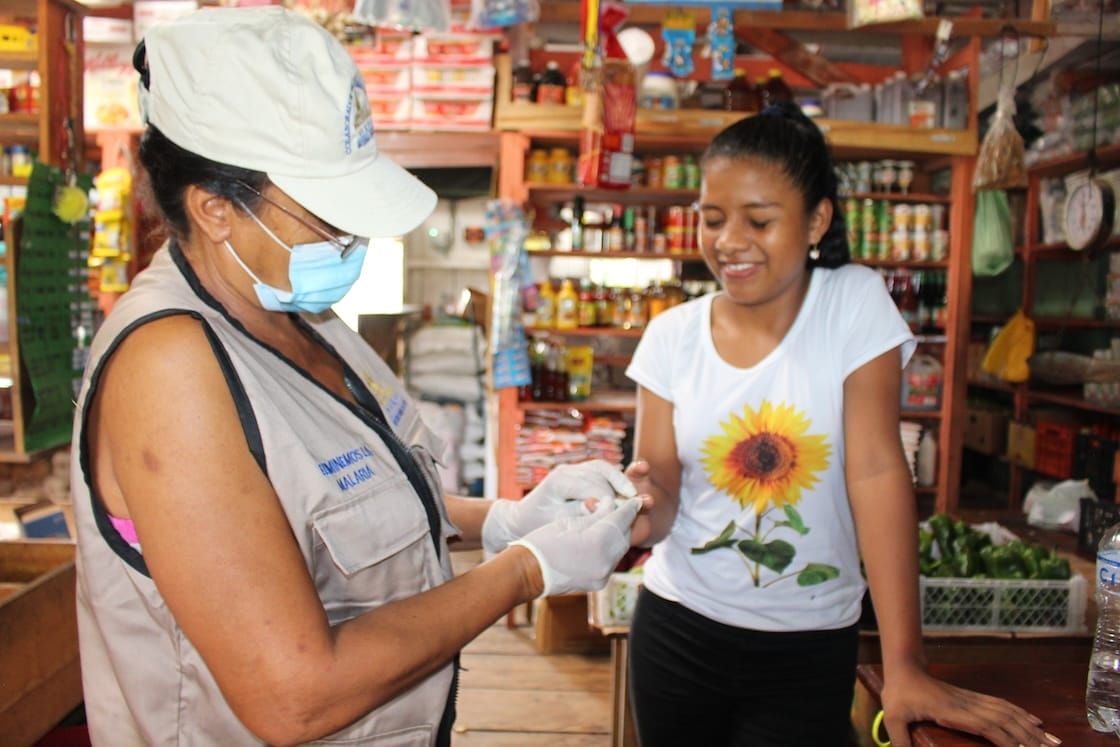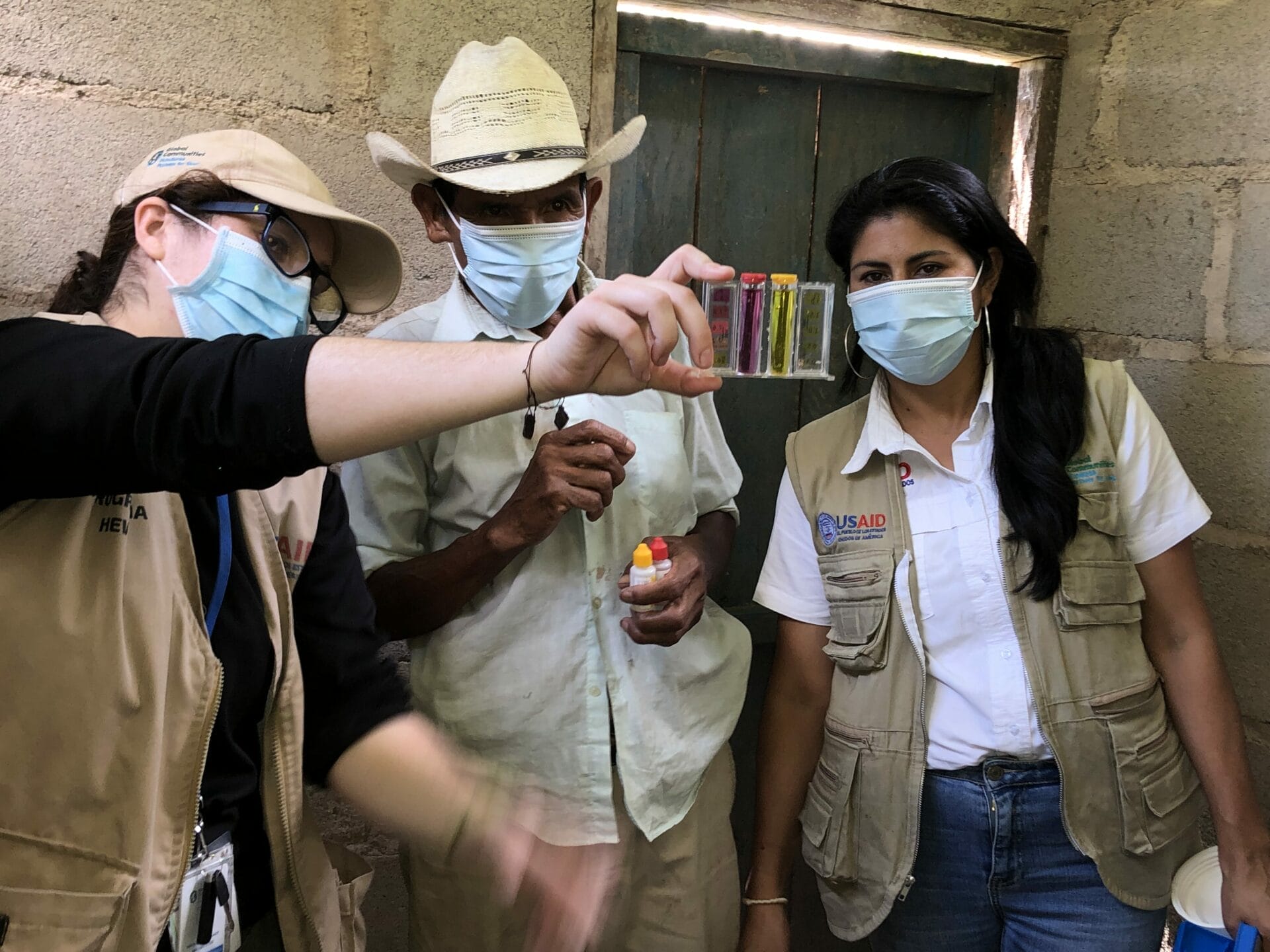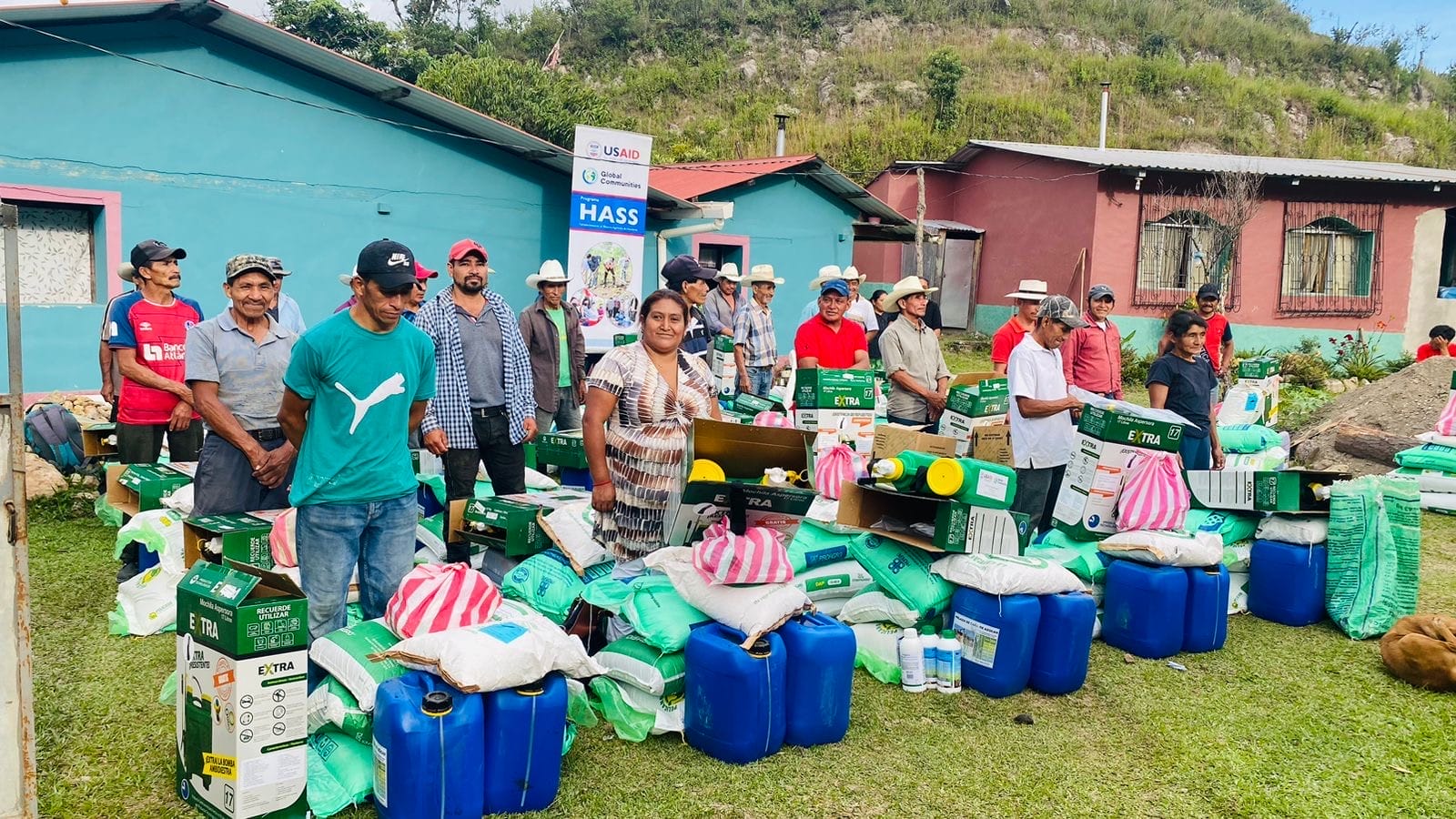

Honduras
Global Communities has been working side-by-side with Hondurans for more than 30 years to build stable, resilient communities through programs focused on water and sanitation, disease mitigation, support for good governance and economic recovery.
According to the National Survey of Demography and Health, only 50% of households in Honduras have access to quality water free of Escherichia coli (E. Coli). Consuming this polluted water can result in severe illness, especially among children under five years of age, those with compromised immune systems and the elderly. Over the last two years, because of the COVID-19 pandemic and Hurricanes Eta and Iota, the situation has only worsened in the country.

In 2023, with support from the United States Agency for International Development’s Bureau for Humanitarian Assistance, we repaired and restored 36 drinking water systems, benefiting more than 31,000 people. We also worked with local water management boards to teach them how to provide adequate maintenance and care of the systems, ensuring a steady supply of safe drinking water.
Although access to safe drinking water is important, raising awareness about good hygiene practices is also fundamental to the health and well-being of communities. Recognizing this, Global Communities trained 106 people to serve as hygiene promotion volunteers. As a result, more than 18,000 people received information and education on effective handwashing, good hygiene practices and other ways to prevent waterborne diseases.
"Before, we had to carry water by bicycle, which put the physical safety of my family in question. Now, we will be able to do the housework like cooking, washing clothes and bathing my children without any problem."
Brenda
Honduras program participant
In July 2023, we launched the COVID-19 Community Vaccination Brigades Project to expand vaccination coverage in the municipalities of Choloma and Villanueva, in the Department of Cortés. The project was funded by the Centers for Disease Control and Prevention and The Task Force for Global Health and carried out in collaboration with the Ministry of Health. A team of 30 vaccinators focused on identifying and vaccinating individuals who had not been vaccinated or those with incomplete vaccination records, particularly prioritizing groups such as children under five, the elderly and those with underlying health conditions. By project’s end, nearly 63,600 doses of vaccines were administered, encompassing both COVID-19 and other essential vaccinations.

"You made the decision to support us since nobody had laid eyes on us after the hurricanes. You came to give life and joy, once again, to our community that was destroyed."
Rosa
Honduras program participant
Finally, Global Communities continued to be at the forefront of eliminating malaria in Honduras in partnership with the Ministry of Health. Under the National Honduras Malaria Elimination Strategy, more than 169,355 people directly benefited from services provided in high transmission areas.
Notable Numbers
Doses of vaccines administered, including COVID-19 and other essential vaccinations
Individuals gained improved access to clean drinking water through water system rehabilitations
Insecticide-treated mosquito nets installed and 4,627 homes received a cycle of indoor residual spraying to protect residents from malaria
Households received multi-purpose cash assistance, helping cushion the blow of increasing inflation and food insecurity
People received information and education on effective handwashing and good hygiene practices
